Are Chinese Tires Any Good? A Real-World Test in Different Conditions
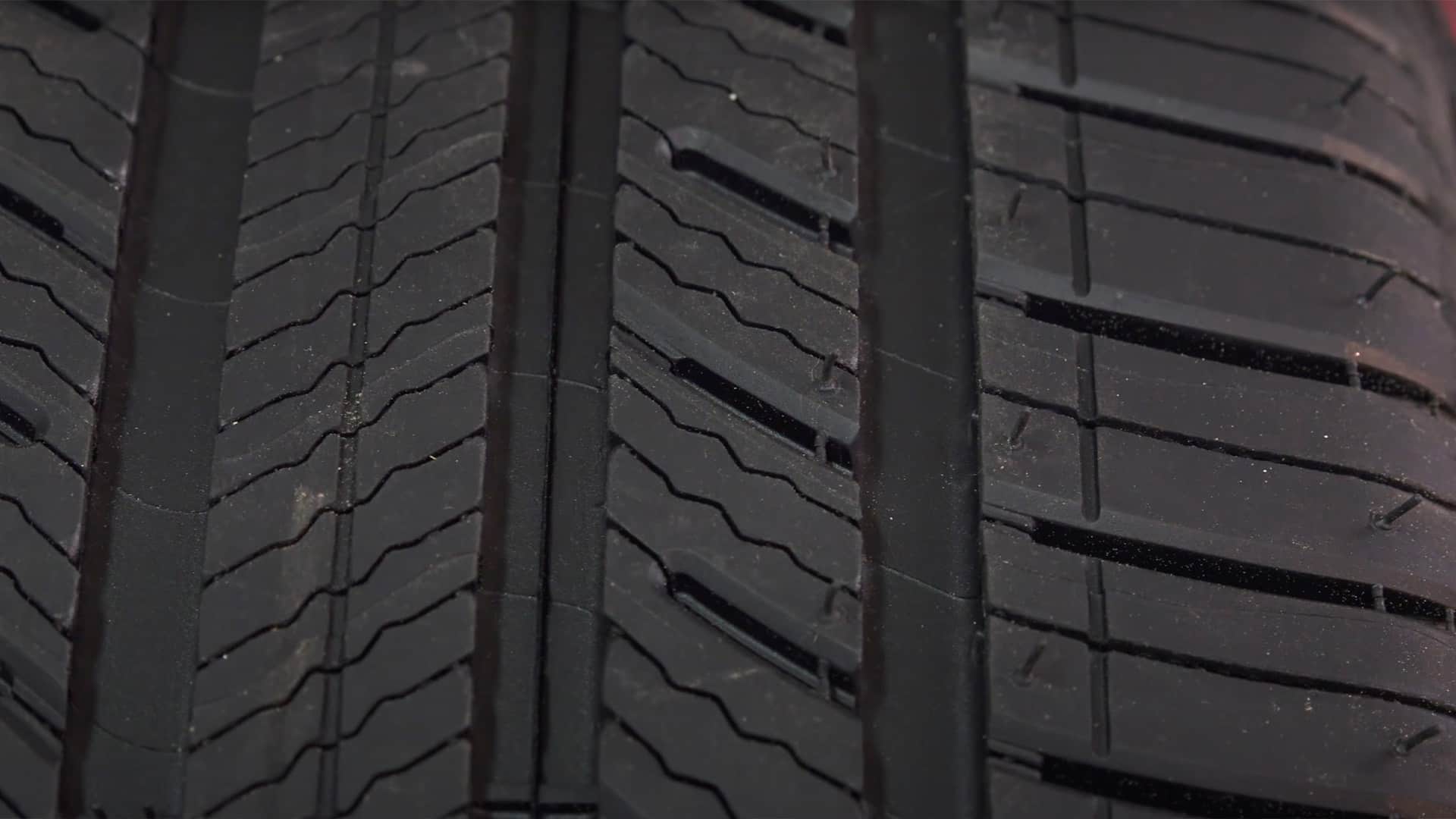
We all know that you get what you pay for, right? While many budget-friendly Chinese tire brands meet international standards for quality and safety, they often can’t measure up to the reputation and experience of premium brands.
In this article, we’ll take a look at the differences between budget Chinese tires and high-performance premium brands, we’ll compare their pros and cons and we’ll check how they perform in real-life scenarios. And spoiler alert – it turns out that investing in high-quality tires is not only better for your safety but also for your wallet!
Are Chinese Tires Any Good?
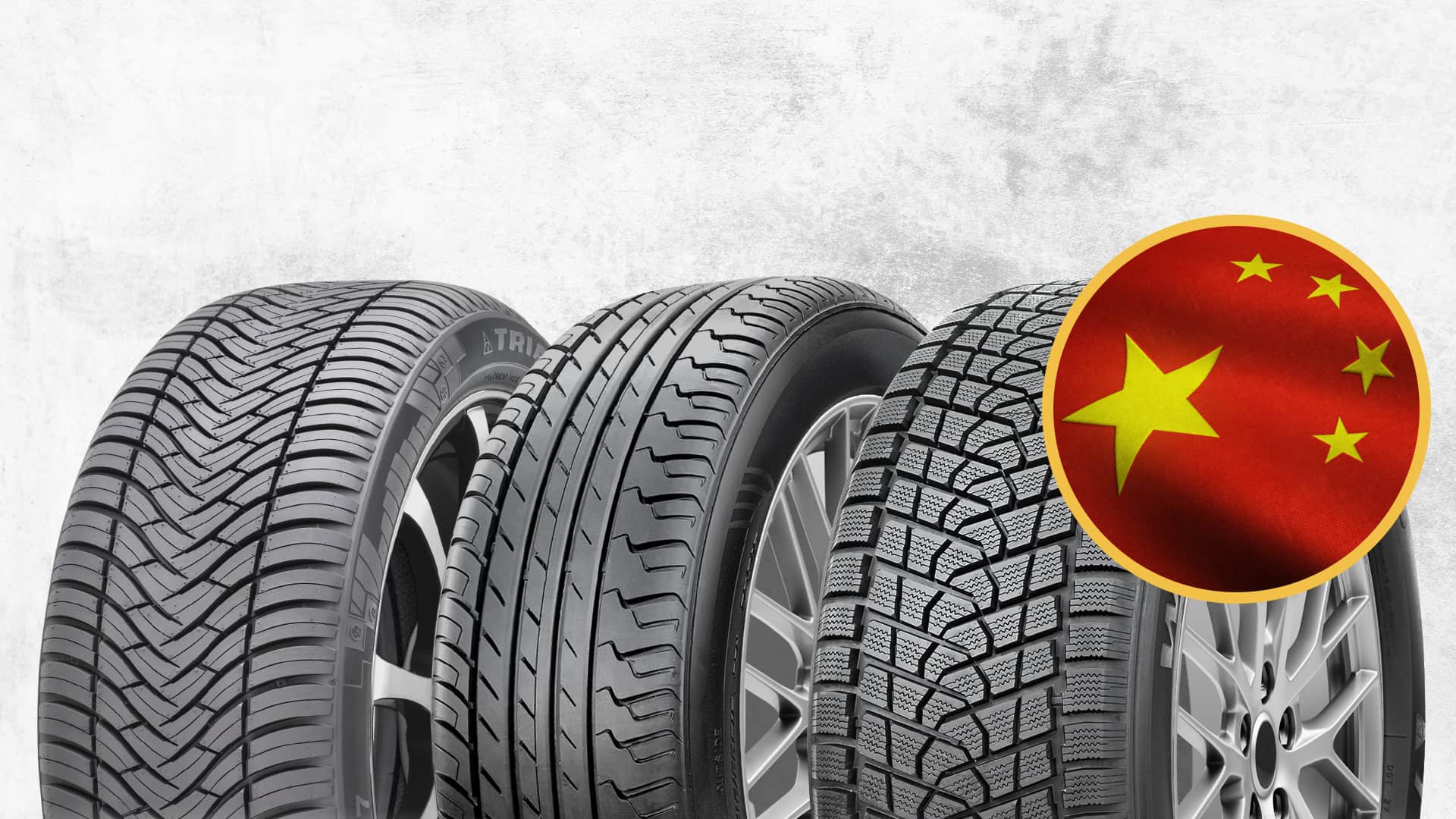
All tires admitted to the international markets undergo appropriate tests to ensure that they meet international standards for quality and safety. One example of such standard is ISO 10191:2021 which regulates tire quality across passenger vehicles worldwide.
Brands that are willing to comply with these standards have to go through rigorous testing procedures that examine everything related to their tires: from strength to brake performance.
However, while some affordable tire models made by Chinese manufacturers do comply with these standards and can still be safe enough for most drivers, they often cannot compete with premium brands.
Overall though, premium tire makers go above and beyond industry requirements while budget tires only meet minimum obligations when it comes to quality standards.
What Is the main difference between Chinese tire brands and Premium Brands?
As much as we’d like to believe that all tires are created equal, there’s actually an invisible side to the science of tire manufacturing. This is where the major disparity between Chinese-made tires and those from other countries lies: Research and Development!
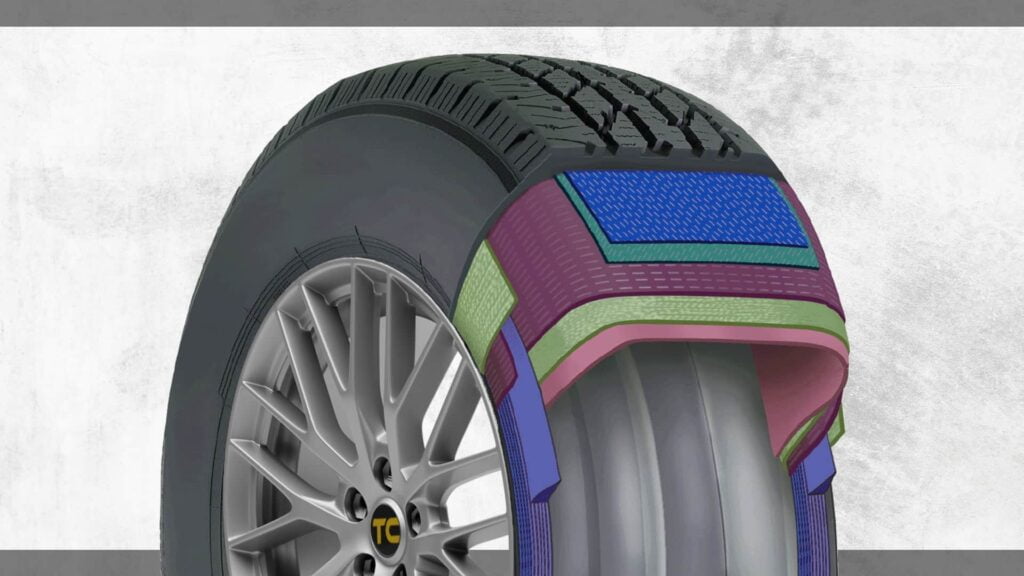
Tire industry manufacturers are facing quite a tricky task: they have to create a rubber tread that has to brave different scenarios like dry and wet terrains while still meeting the driver’s high expectations for durability, quietness, and overall smooth riding.
Premium brands invest millions of dollars each year in improving their tire technology, remaining on par with the rapid rate of change in the automotive industry. For example, the tire manufacturer Continental puts their tires through exhaustive tests, covering over 125 million miles annually.
Before a new tire is released for sale, its prototypes undergo hundreds of different tests totaling an equivalent distance of approximately 500 times around the world.
This dedication to thoroughness allows premium tire manufacturers to create tires of high quality that are tailored to meet the varying needs of different types of vehicles, driving conditions, unpredictable weather, and more.
The Chinese brands, on the other hand, are spending much less on Research and Development.
And as a result, Chinese tires struggle to effectively address conflicting targets. For instance, if they design a tire with good performance on dry terrain – their wet braking performance is notably lacking. And the test shown below proves this very well.
Real Test: Chinese Tires vs Premium Brands
There were numerous tests done that compared Chinese brands and Premium brands. For the purpose of this article, let’s look at the most recent independent test done by TyreReviews.com.
During the test, several premium tire brands like Michelin, Continental, Goodyear, and Bridgestone were compared with two Chinese tire brands, Giti and Rotalla. The tests included dry handling, wet handling, dry braking, and wet braking.
Wet braking
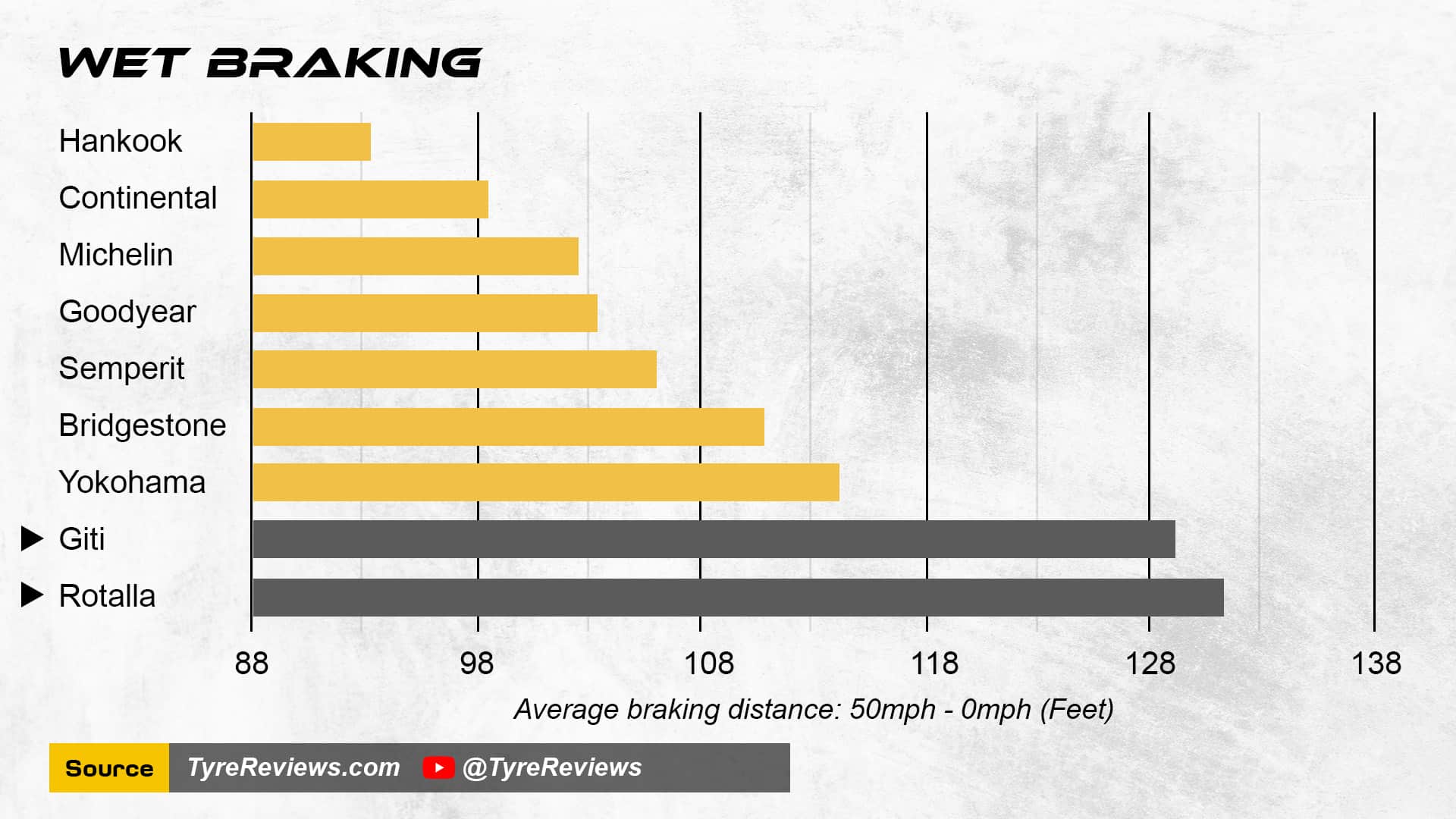
During TyreReviews.com’s test, the Chinese tires Giti and Rotalla were put to the test for wet braking from 50mph against the other premium tire brands.
Both Giti and Rotalla had longer braking distances than all of the other tires tested, coming in at about 130 feet. This is more than 35 feet longer than the top-performing Hankook.
And that’s the equivalent of two car lengths! Even if you’re not a tire expert, it’s easy to understand that a lot can happen in 30 feet…
Dry Braking
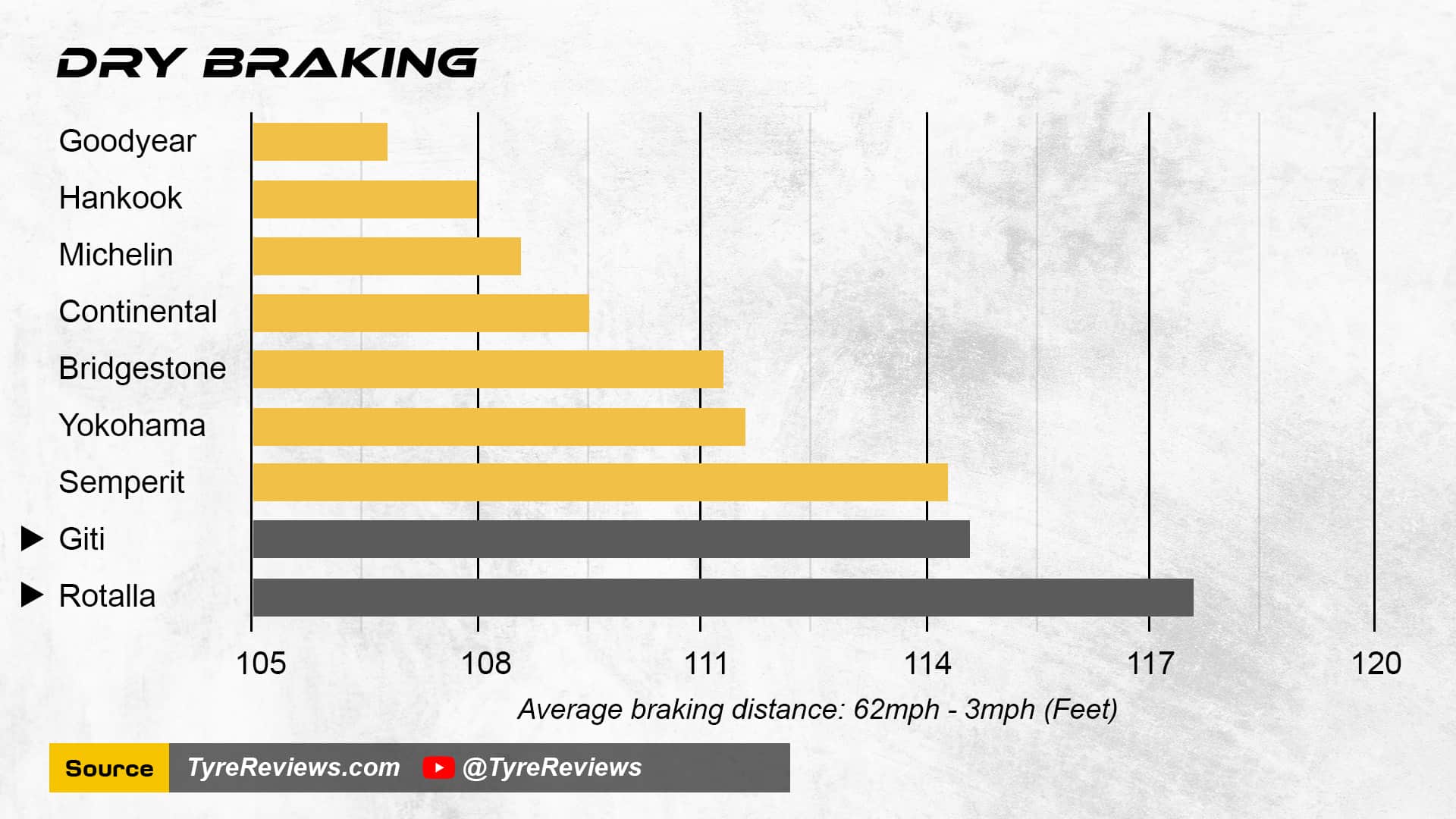
The dry braking test carried out by TyreReviews.com measured how long it took the cars to stop from 62mph on a dry surface. In this test, Giti came in at second last place with a braking distance of 115 feet while Rotalla was positioned at the bottom with a score of about 118 feet.
Wet Handling
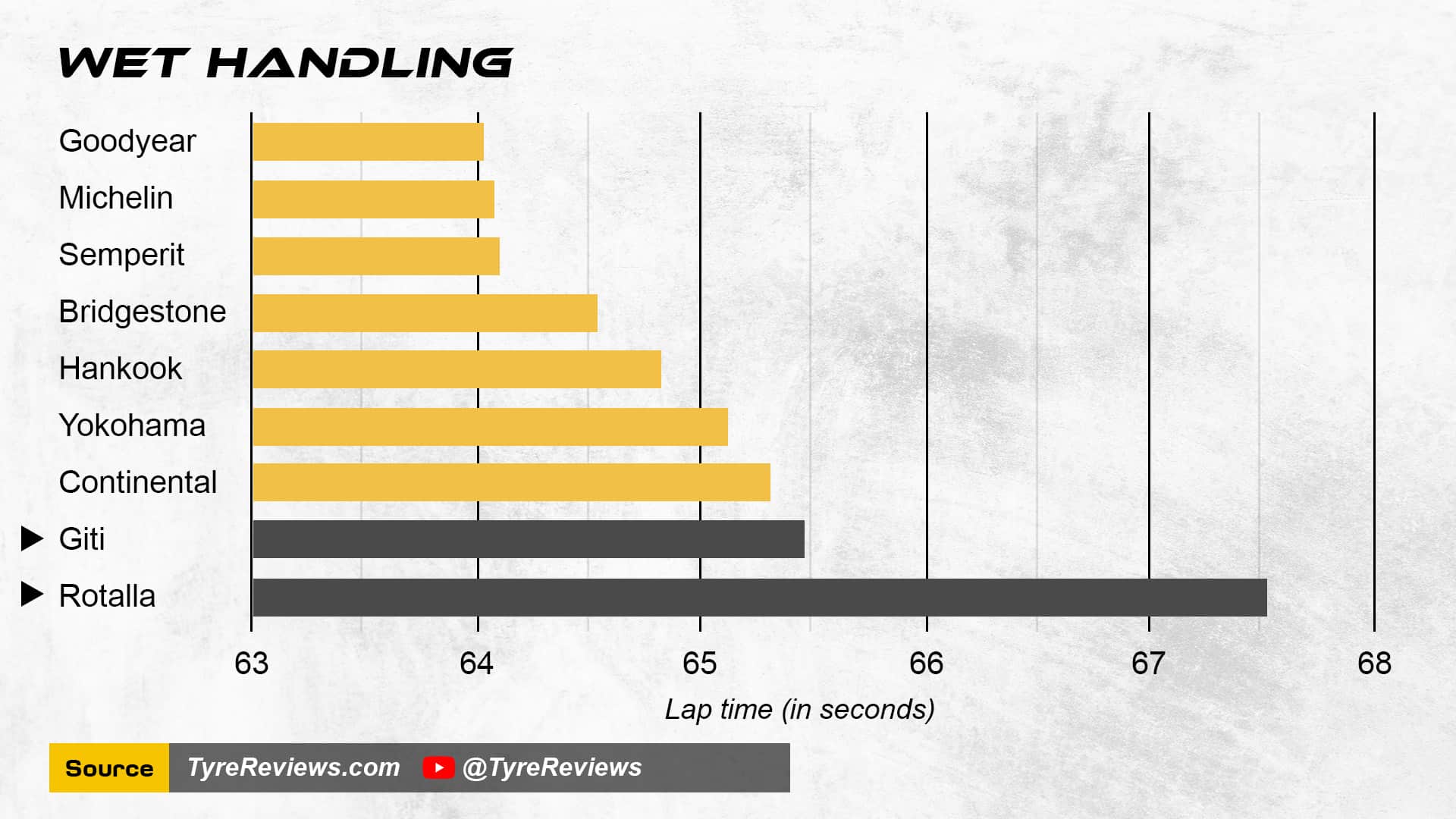
The wet handling test involved driving several laps around the track. The goal was to figure out the average time it took to complete the laps on each of the tires. This test helps determine how well the tires grip the road and how well they handle the high speeds in wet weather.
Once again, the Chinese tire manufacturers underperformed when compared to other leading premium tire brands. In particular, Rotalla had the lowest performance score among all at 67.50 seconds; while Giti performed slightly better coming in with a score of 65.45 seconds but still ending up being one of the worst performers within our comparison list.
Dry Handling
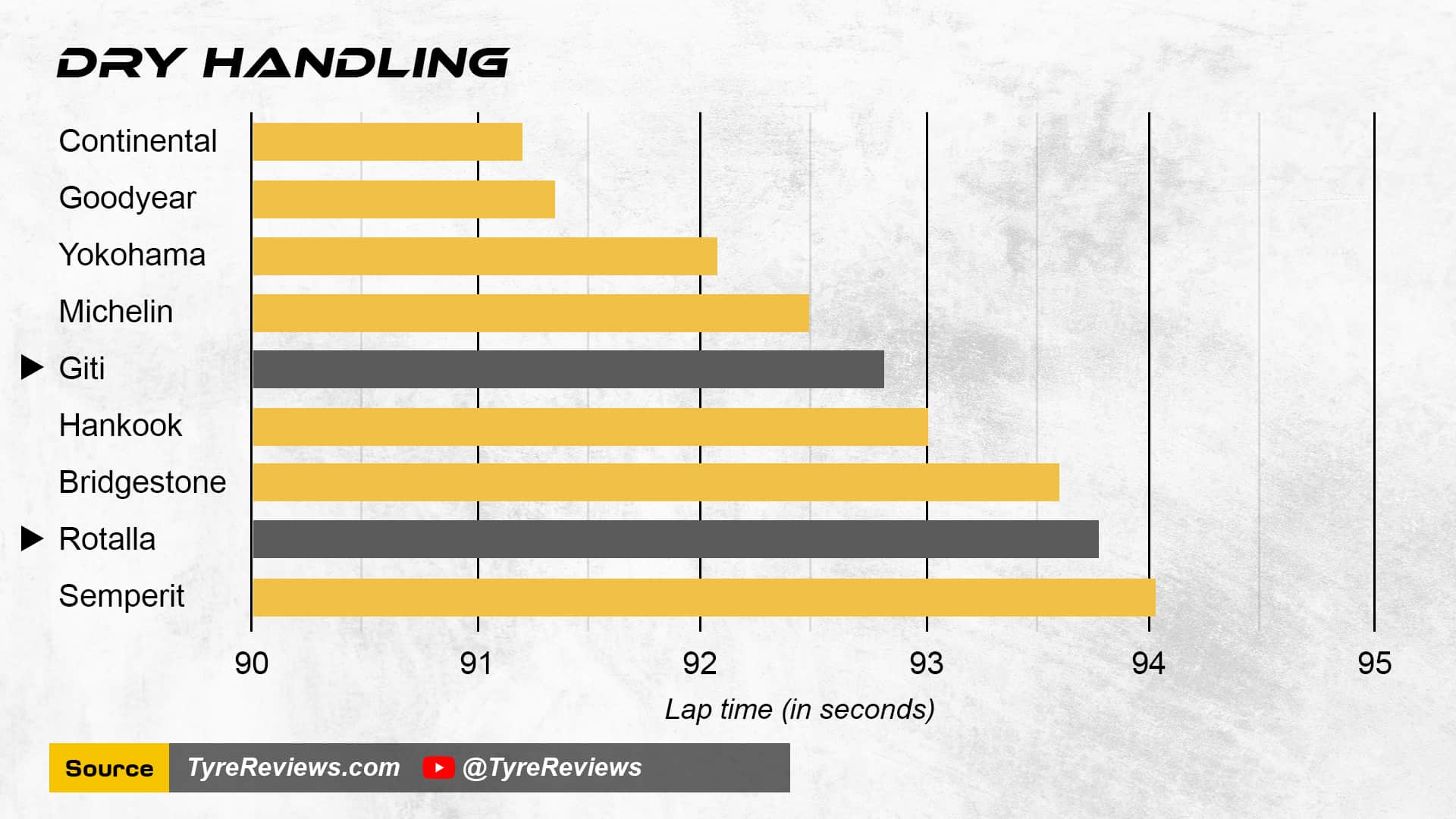
The dry handling test determines how much traction and grip each specific tire can offer on dry roads.
While Giti did not perform as well in this particular test as some of its competitors, it managed to achieve a 92.80-second average lap time which placed it somewhere in between all the competitors. On the other hand, Rotalla had slightly longer lap times, coming in at 93.70 seconds which placed it at the end of the list.
Summary: Disadvantages Of Chinese Tires
Poor Performance
In the wet and dry braking test, as well as in the wet handling test, the Chinese tires underperformed compared to other premium tire brands. In the dry handling test, however, Giti performed relatively well facing steep competition from established premium offerings.
The results indicate that while Chinese tire manufacturers have made progress in recent years toward better tires at affordable prices, there is still a lot of room for improvement.
More Expensive In The Long-Run
You’ll be surprised to hear that premium tires aren’t just safer, but they’re also wallet-friendly in the long-run. Yes, it’s true that you may have to shell out a little more initially for these high-quality tires, but it’s well worth it.
Premium tires are engineered to last longer. According to leading UK consumer reports “Which?”, lower priced tires will only survive two years whilst premium ones can outlive them and keep going for up to five years.
Besides this, most premium tires have an extra add-on benefit of reducing friction or “rolling resistance”. Lower rolling resistance means that your car requires less fuel usage which contributes positively towards lower CO2 emissions too overall – meaning both your pocketbook AND our planet can breathe a little easier!
Advantages Of Chinese Tires
Cheaper Costs
Many drivers have noticed that tires made by Chinese manufacturers tend to be much cheaper than those made in other countries. So, what’s the secret behind these remarkably low prices?
Final Words
With their top-of-the-line rubber formulas, premium tires provide remarkable grip and performance compared to budget tires. It’s been proven by numerous independent tire tests that investing in high-quality tires is well worth it. Sure, they might cost more upfront, but in the long run, they last longer and save you more.
